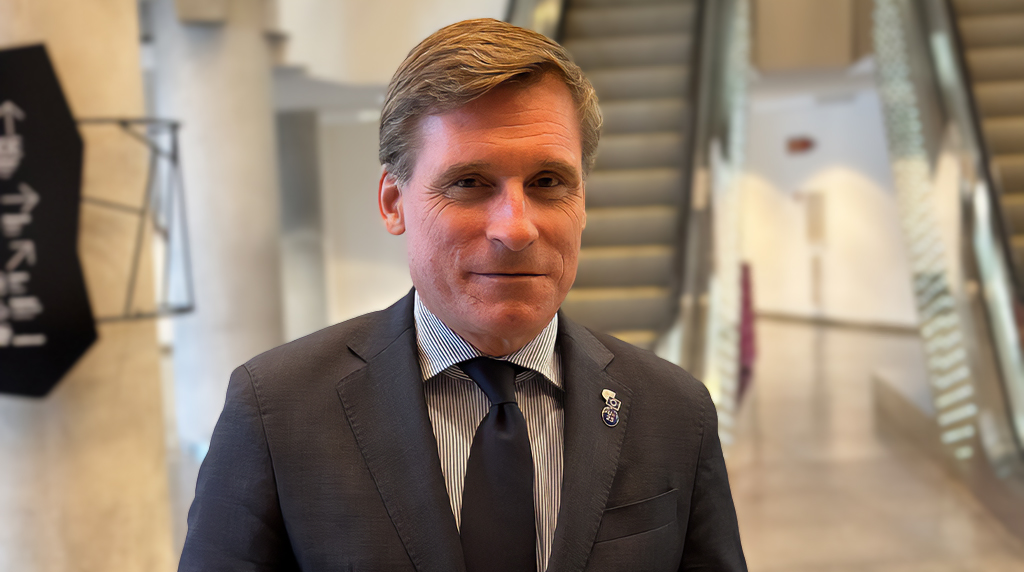Oliver Röpke: ‘We are asking for a dedicated fund’ for rare diseases
October 2023
At this month’s Conference on Rare Diseases and the European Reference Networks (ERNs) in Bilbao, we spoke to Oliver Röpke, President of the European Economic and Social Committee (EESC).
This pivotal conference, held under the auspices of the Spanish Presidency of the EU Council, provided the ideal platform to discuss the progress of ERNs and key EU decision-makers’ visions of rare disease policy.
In our conversation with him, Mr. Röpke’s insights shed light on the progress achieved so far and the strategic steps needed to address unmet challenges in the world of rare diseases.
The EESC has been calling for a comprehensive approach to address the unmet needs of people living with rare diseases. How far do you think we have progressed toward such an approach, and what efforts are missing?
Well, I think there is a certain progress. I see this progress when I look at the whole process from when we started with our Opinion in 2009, to the announcement that we wanted to organise a big conference under the Spanish Presidency, and in our Opinion in 2022 which paved the way for the conference here.
I think there has also been a lot of progress in our house to raise awareness about rare diseases in general, but also to focus on a European solution and on a comprehensive European approach. That has now expanded to more than just awareness raising, listening to the Commissioner [Stella Kyriakides] and to the Director General [Sandra Gallina].
So, I think we are on track, but once again, we have to continue to take the next steps. We are asking for a dedicated fund for this because it’s not enough to agree on a comprehensive strategy. We have to make sure that all patients concerned have the same rights in different Member States.
There cannot be a tiered, Class A, Class B or Class C patient system. And that’s why we are insisting on this European approach.
We were, by the way, also one of the first institutions calling for a European Health Union during the Conference on the Future of Europe. And I just discussed it with the [Spanish] health minister, exactly this question. He said, what does it mean? A European Health Union? I think this conference is a concrete example. A European Health Union means solidarity and a comprehensive European approach on, in this case, rare diseases, but also for other topics.
So yes, I think we have made some progress, and as I said, now is the time for the next steps. We hope that the next presidencies will take this issue equally seriously as the Spanish one is, and that they will continue to collaborate with us.
One year ago, over 20 EU Member States endorsed the call for a European Action Plan for Rare Diseases, which was one of your recommendations. Why do you think it’s not happening? And what should we do at the European level to make this happen?
We have to continue to push. And not only, I would say, at the institutional level. We have to involve civil society, as we are doing at this conference.
Our call for a comprehensive action plan on the social economy took years to reach the European Commission. But I think in the same way we did it with the social economy, we will achieve it here on rare diseases.
It’s important that we have the stakeholders here together. It’s so important that it’s not a small gathering of only decision-makers, but it’s a big gathering with all the people and organisations and civil society that are concerned.
And do you think the Commission will seek to adopt such a plan?
Well, I cannot predict this, but we will insist on it. We will insist on this as the EESC.
Oliver Röpke was elected as the President of the European Economic and Social Committee (EESC) in April 2023. A member of the EESC since 2009, Mr. Röpke was the President of the EESC Workers’ Group, a member of the EESC Bureau, and rapporteur of many EESC resolutions and opinions on employment and social policy, the single market, and innovation.
